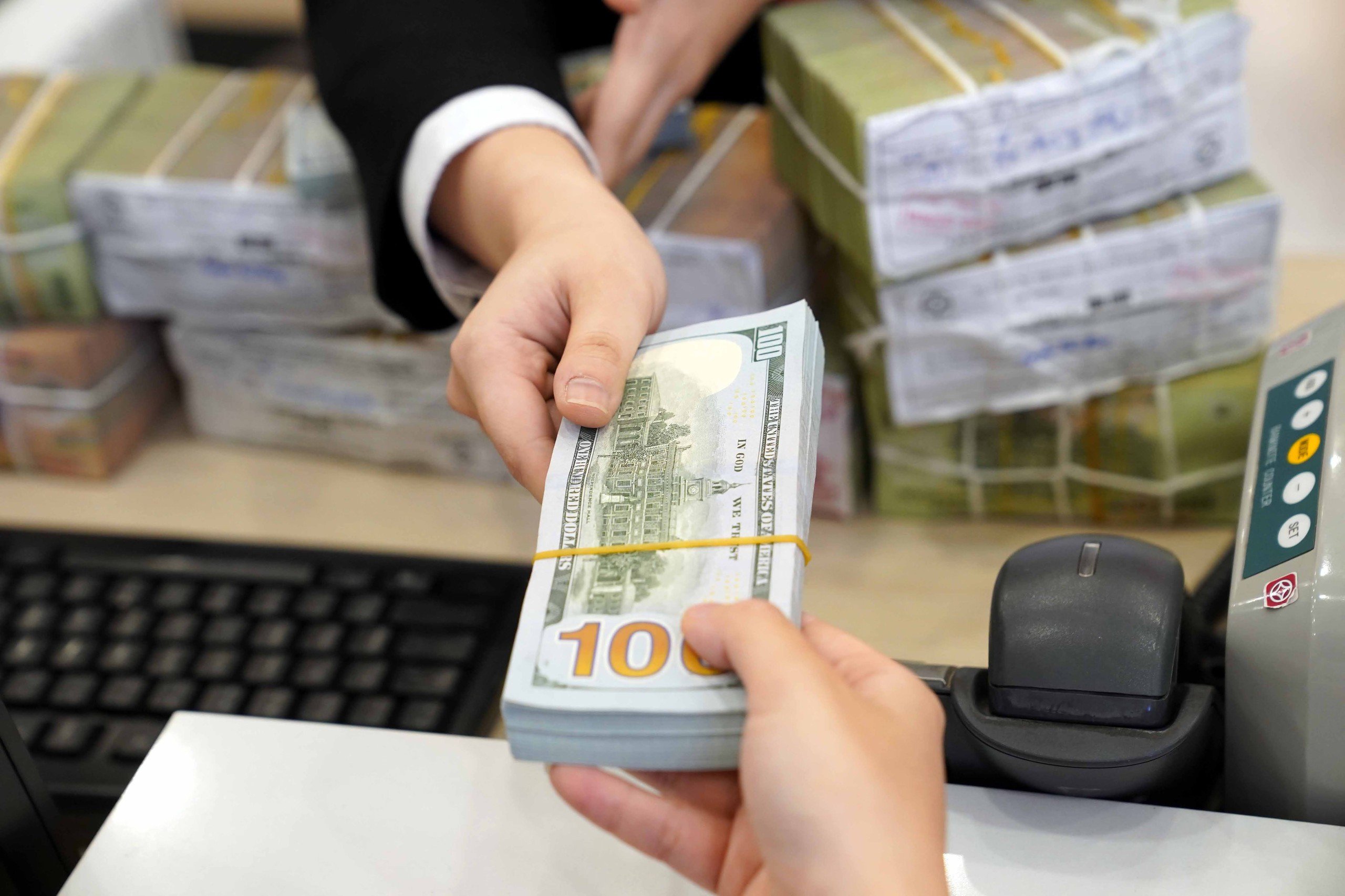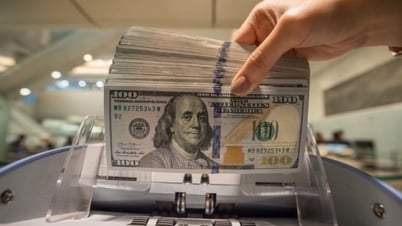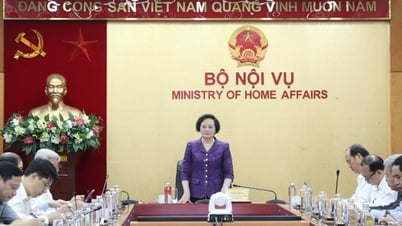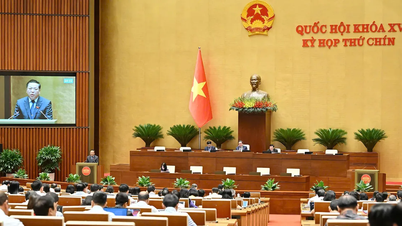According to Mr. Pham Chi Quang, since the beginning of 2024, the foreign exchange market and domestic exchange rates have been under pressure from unpredictable fluctuations in the global financial market, combined with challenges and difficulties in the domestic market in recent times. First of all, inflation has remained high in the US, causing the international market to continuously adjust forecasts and postpone the expected time for the US Federal Reserve (Fed) to cut interest rates. The change in market expectations about the monetary policy path (CSTT), the Fed's interest rate cut, along with increasing geopolitical tensions in some territories, has caused the international USD to appreciate sharply, at times the USD index (DXY) increased by 5% compared to the beginning of 2024, creating devaluation pressure on other currencies, including VND.
From the beginning of the year to mid-May, the economy 's imports recovered strongly - estimated at 132.23 billion USD, an increase of 19.7 billion USD (up 17.5%) over the same period in 2023, increasing the demand for foreign currency, especially the demand for foreign currency to pay for the import of essential raw materials for domestic production. However, the import of raw materials at the beginning of the year to serve the economic recovery process will create a premise to promote production and export activities, thereby creating foreign currency revenue in the future, which can relieve some of the pressure on exchange rates in the coming time.

State Bank sells USD to intervene in the market
While the US continues to keep USD interest rates high, VND interest rates are lower than international USD interest rates (causing the interest rate differential between the two currencies to be negative), encouraging economic organizations to buy foreign currency forwards to serve future payments - transferring future foreign currency needs to the present; while customers with foreign currency income have the mentality of delaying the sale of foreign currency to the credit institution system, making the balance of foreign currency supply and demand less favorable in the short term and putting pressure on the exchange rate.
Since the beginning of 2024, VND has depreciated by about 5% against USD, similar to the depreciation trend of currencies in the region: Taiwan Dollar (-5.06%); Thai Baht (-6.31%); South Korean Won (-5.66%); Japanese Yen (-10.87%); Indonesian Rupiah (-3.87%); Philippine Peso (-4.82%); Chinese Yuan (-2.04%).
However, all the above difficulties and challenges of the domestic foreign exchange market are only short-term, because in the coming time, with the positive recovery momentum of exports, the market's foreign currency supply will be supported to increase, while the recent sharp increase in the purchase of foreign currency futures by businesses is a factor that reduces the demand for foreign currency in the future, thereby the balance of foreign currency supply and demand is likely to improve more positively in the near future. At the same time, the international financial community maintains the view that the Fed will likely cut interest rates by the end of 2024, thereby reducing the devaluation pressure on currencies around the world , including VND. Based on the fundamental factors at home and abroad as mentioned above, many international organizations predict the possibility of VND appreciating again when these fundamental factors are gradually realized in the near future.
To support the stabilization of the foreign exchange market, ease pressure on the exchange rate in the context of relatively excess VND liquidity of credit institutions, and narrow the negative interest rate gap in the interbank market as mentioned above, the State Bank of Vietnam has issued treasury bills with appropriate terms and volumes to regulate the excess VND, limiting factors that increase pressure on the exchange rate. At the same time, from April 19, the State Bank of Vietnam has sold foreign currency to intervene to support market liquidity.
Mr. Pham Chi Quang also said that although the international situation still has many challenges and is unpredictable, with a solid macroeconomic and foreign affairs foundation and the Fed's plan to start cutting interest rates from the end of this year as mentioned above, the pressure on the exchange rate will be reduced. In the coming time, the State Bank will operate the exchange rate flexibly, in accordance with market developments through continuing to synchronously combine monetary policy tools with foreign currency sales to support market liquidity, thereby serving the legitimate foreign currency needs of the economy, contributing to stabilizing market sentiment, stabilizing the macro economy and controlling inflation.
"Some recent information about changes in the State Bank's exchange rate management is inaccurate and inconsistent with the Government's goals of stabilizing the market and the macro economy, creating instability in the market. Therefore, businesses and people need to be cautious about rumors," said Mr. Pham Chi Quang.
Source: https://thanhnien.vn/ngan-hang-nha-nuoc-tuyen-bo-tiep-tuc-ban-ngoai-te-can-thiep-thi-truong-185240524213247967.htm


![[Photo] Special flag-raising ceremony to celebrate the 135th birthday of President Ho Chi Minh](https://vphoto.vietnam.vn/thumb/1200x675/vietnam/resource/IMAGE/2025/5/19/1c5ec80249cc4ef3a5226e366e7e58f1)


![[Photo] Party and State leaders attend the special art program "You are Ho Chi Minh"](https://vphoto.vietnam.vn/thumb/1200x675/vietnam/resource/IMAGE/2025/5/18/6895913f94fd4c51aa4564ab14c3f250)

![[Photo] Party and State leaders visit President Ho Chi Minh's Mausoleum](https://vphoto.vietnam.vn/thumb/1200x675/vietnam/resource/IMAGE/2025/5/19/d7e02f242af84752902b22a7208674ac)





























































































Comment (0)